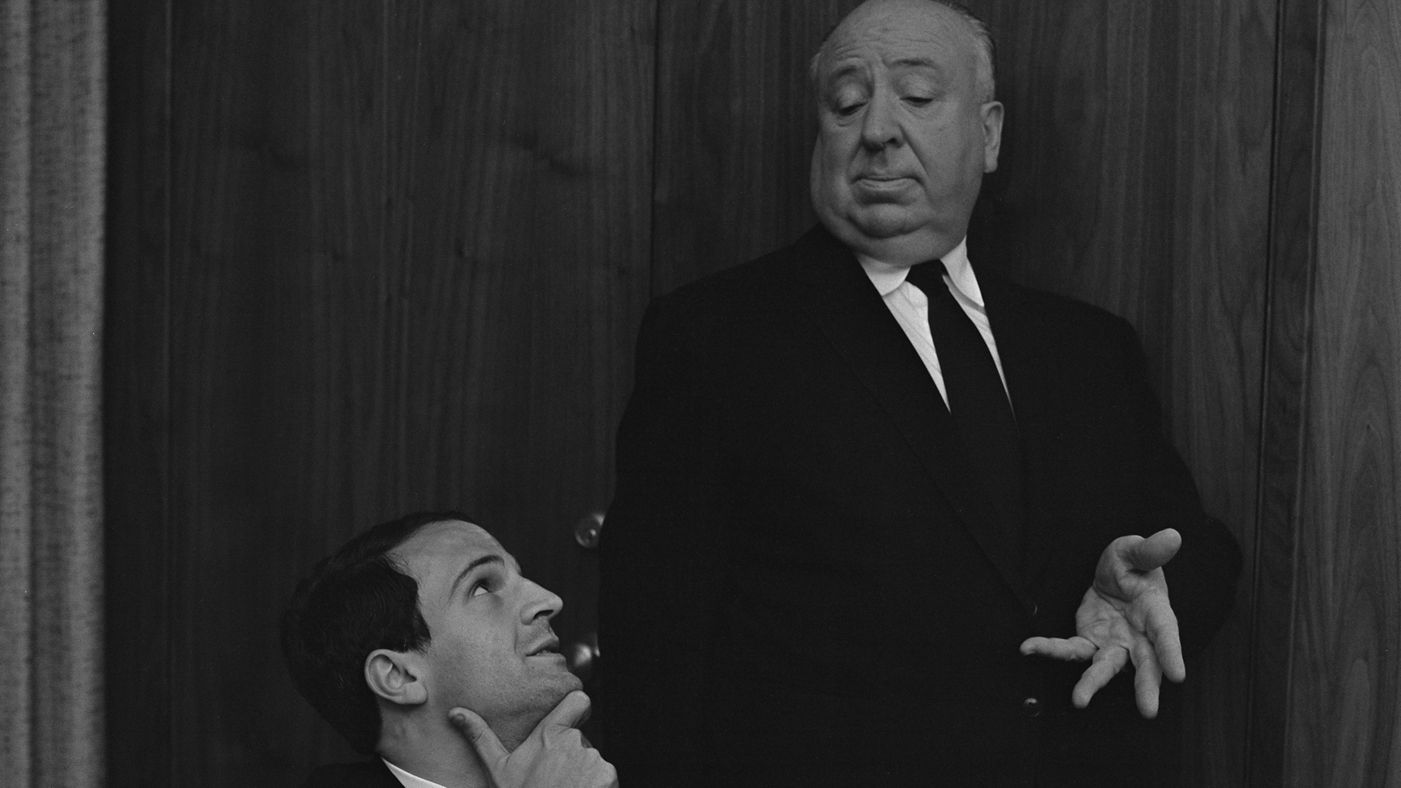What better movie is there than Kent Jones’s Hitchcock/Truffaut documentary to prematurely break my sabbatical from film criticism? Truffaut’s 1962 in depth interviews with Hitchcock took over four years for the French Nouvelle Vague director to transcribe the tapes and arrange the accompanying photographs into his seminal “hitchbook.” My own copy resides between the 2000AD graphic novel of Bad Company and the 2009 edition of the Time Out Film Guide. Over the last year it has seen some serious use as I have tried to put my money where my mouth is and concentrated on writing two screenplays.
Kent Jones has managed to translate these fabled pages of cinematic wisdom into a lean 80-minute documentary featuring a stellar cast of international directors. The influence of Truffaut’s book is far reaching. Martin Scorsese speaks for 1970s New Hollywood, “We became radicalised as movie makers,” whereas Wes Anderson’s well-thumbed copy is nothing more than, “A stack of papers.” Kiyoshi Kurosawa forbids himself to imitate Hitchcock but nails his contradictions; “He portrayed himself as a mainstream figure but he’s really at the farthest edge of things.” David Fincher was given his copy by his dad and quickly learned that, “There was a set of rules, and Hitchcock broke them all.”
Fincher, the quintessential contemporary auteur, relates to Hitchcock’s idiosyncratic flourishes and psychological hang-ups that spill out of every frame, “You can’t hide yourself in film.” Hitchcock’s fear of the police and wrongful arrest stems from being locked up for a short time as a boy on the bequest of his own father but thankfully that old standard is brushed over quickly. The fascinating parallel is that Truffaut was locked up for three months in a reform school for delinquents after being shopped by his own father. Much of this was spent in solitary confinement and was the source material for Truffaut’s debut movie, The 400 Blows. Truffaut had many surrogate father figures, including Andre Bazin who took him to the film magazine Cahiers du cinema, and later Hitchcock himself whom he remained good friends with after the book was published.
Olivier Assayas reasons that Hitchcock is a spiritual filmmaker and a Catholic artist often focusing on the transfer of guilt brilliantly illustrated by the stunning dissolve between two faces in The Wrong Man. Paul Schrader remembers Vertigo as “a lost film” and “a sacred document.” Through his own narration, Hitchcock reveals the psychosexual subtext to the famous scene where James Stewart’s Scottie is waiting for Kim Novak’s Judy to finally transform herself into his dead lover Madeline. Scottie is frustrated because Judy has not curled her hair in a particular way to which Hitchcock quips, “She has stripped but she won’t take her knickers off.” To hear Hitchcock’s prototype director’s commentary gives Truffaut’s book a whole new lease of life that will ensure the next generation of filmmakers will be as equally beholden to this tome as the last.
Hitchcock/Truffaut is beautifully crafted, seamlessly drifting between the audio tapes of Hitchcock and Truffaut, the former rolling his tongue deliciously around each anecdote and statement, the latter questioning the great man with subtlety and wit that is disarming and incisive, at times forcing his subject to go, “Off the record.” Jones can only focus on so many films in his limited running time but the awe and deep affection drawn from his all-star cast of talking heads shows the beguiling spell Hitchcock can cast over the leading lights of cinema. Surely a television series bringing each chapter to life would be a work as worthy as Mark Cousins’, The Story of Film: An Odyssey?
Personally I would have liked to hear more about Truffaut and his translator Helen G. Scott, but after all, like the book the film is about Hitchcock’s work and not Truffaut’s, so ultimately the master showman rises to the fore. Yet without Truffaut’s own admiration for Hitchcock, the whole language and landscape of cinema might have been totally different. In 1979, when addressing the AFI, Truffaut said, “You call him Hitch. In France, we call him Monsieur Hitchcock. In America, you respect him because he shoots scenes of love as if they were scenes of murder. We respect him because he shoots scenes of murder like scenes of love.” Now back to those screenplays…
Hitchcock/Truffaut is released on DVD 25th April
Photo courtesy Cohen Media Group

